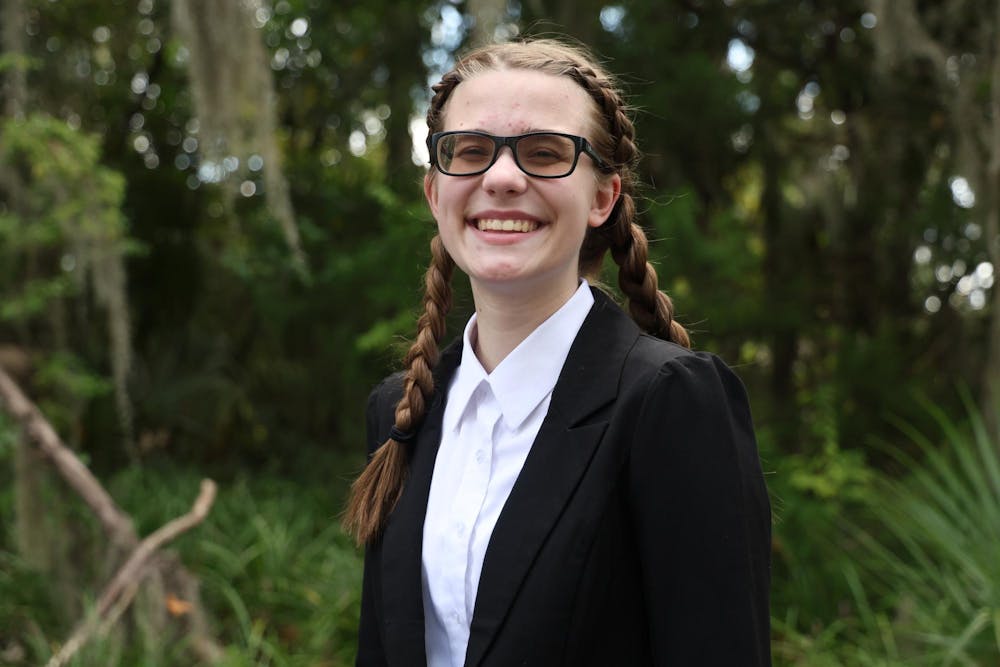Are you an orchid murderer?
If so, you’re not alone. I’ve inadvertently killed my fair share of these tropical plants over the years.
When I brought my first orchid home from Publix, wrapped in plastic and bursting with blooms, I had no idea how many crimes I would commit against this plant species until the casualties started racking up.
From following the infamously unclear watering instructions to knocking my orchid off the windowsill, I’ve unintentionally killed many orchids on my quest to discover the secret to keeping them alive.
As a beginner starting out, it seemed to me like some Sisyphean feat to keep an orchid plant from dying. The second I overwatered my orchid, underwatered my orchid or simply looked at my orchid the wrong way, I had another to add to my growing list of orchid victims.
In a desperate attempt to remedy my orchid affliction, I visited the Kanapaha Botanical Gardens on Oct. 25, where the Gainesville Orchid Society hosted its annual orchid show. There, I learned how to grow award-winning blooms and hopefully left with a better understanding of how to to finally keep my orchids alive.
After speaking with vendors, hobbyists and other specialists in the field, I’ve come to believe the biggest obstacle for beginners isn’t just the plant’s finicky nature — it’s the business model of planned obsolescence that has been instilled in the orchid industry, especially in big chains and grocery stores.
Planned obsolescence — the practice of designing products with a limited lifespan to encourage repeat purchases — is, in my view, the greatest threat to the sustainability and accessibility of orchid growing today. Planned obsolescence is everywhere, from the poor-quality substrates orchids are packaged in, to misleading care instructions, to pots with inadequate ventilation, to the forced blooming of unhealthy plants in grocery stores. Many orchids sold commercially are, quite literally, designed to die.
Much like fast fashion, these orchids are treated as disposable, sold and tossed away like cut flowers despite their potential to live 15 to 20 years in healthy conditions.
Industry insiders echo this sentiment, with many vendors and hobbyists at the orchid show joking “to become an expert at keeping orchids alive, you have to kill a few first,” and others admitting they’ve lost count of how many they’ve killed throughout the years. While orchids are notoriously temperamental, the real challenge lies in navigating an industry that often sets growers up to fail from the start.
To cultivate a community that challenges this culture of disposability in favor of lifelong hobbies, it’s important now more than ever to lean into the local resources available. Organizations like the Gainesville Orchid Society promote education on sustainable orchid growing practices and emphasize the importance of purchasing high-quality materials that lend to long-term growth — as opposed to fleeting, short-term beauty. In this way, orchid societies combat planned obsolescence by cultivating orchids for longevity with proper care, quality materials and personalized guidance, which empowers buyers to nurture thriving plants instead of replacing dying ones.
The annual orchid show is a call to rethink how we grow orchids. By embracing community, choosing sustainable practices and supporting local growers, we can shift the orchid industry away from a cycle of disposable consumerism to one of lasting legacy.
Elliana Boyarshinov is a 19-year-old UF finance and economics sophomore.






